Winners 2024
Congratulations to the 2024 Civil Service Awards winners! Last year we received 2,116 nominations across our award categories. After a rigorous judging process, the fantastic individuals and project teams listed below were selected as the overall winner for their category.
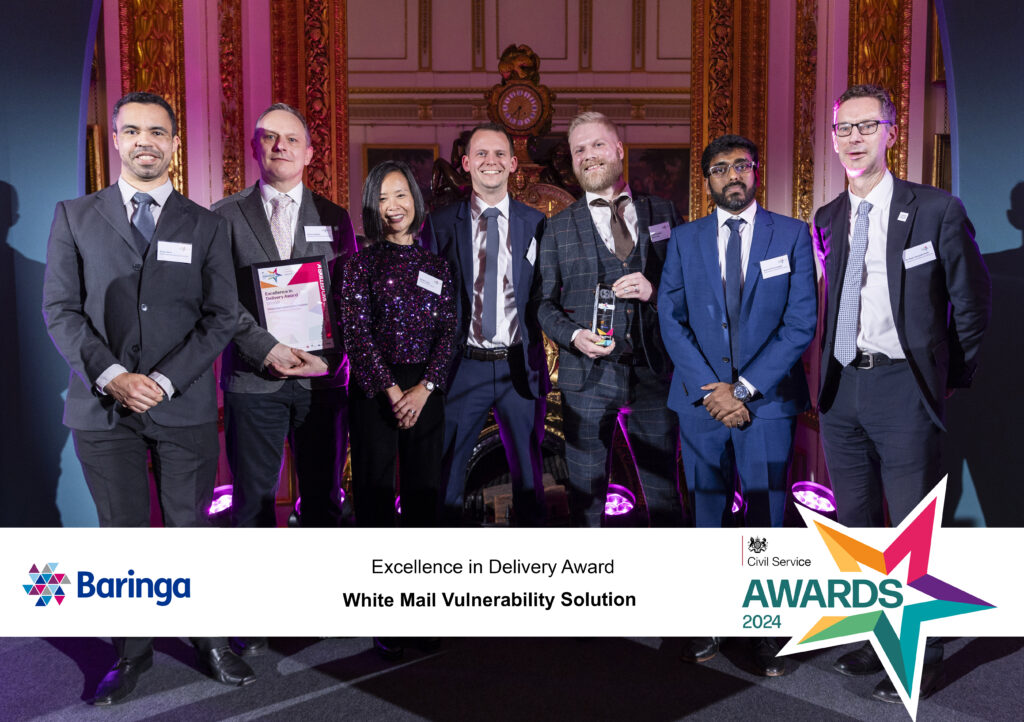
Excellence in Delivery Award
supported by Baringa
White Mail Vulnerability Solution
Department for Work and Pensions

Developing and Supporting People Award
Ben Bilefield
Department for Energy Security and Net Zero
ZenwithBen started as an informal weekly mindfulness session led by Ben Bilefield for his BEIS team in September 2021. Since then, it has grown organically through word-of-mouth recommendations, reaching over 1,500 civil servants across the UK in over 25 government departments, mostly outside of London. Ben fosters a sense of community, creating a safe and open space for colleagues to honestly share their feelings and improve their mental health by developing their mindfulness practice. Participants describe the sessions as “friendly,” “invaluable,” and “transformative” for their mental health, even calling them an “essential part of their weekly schedule.”
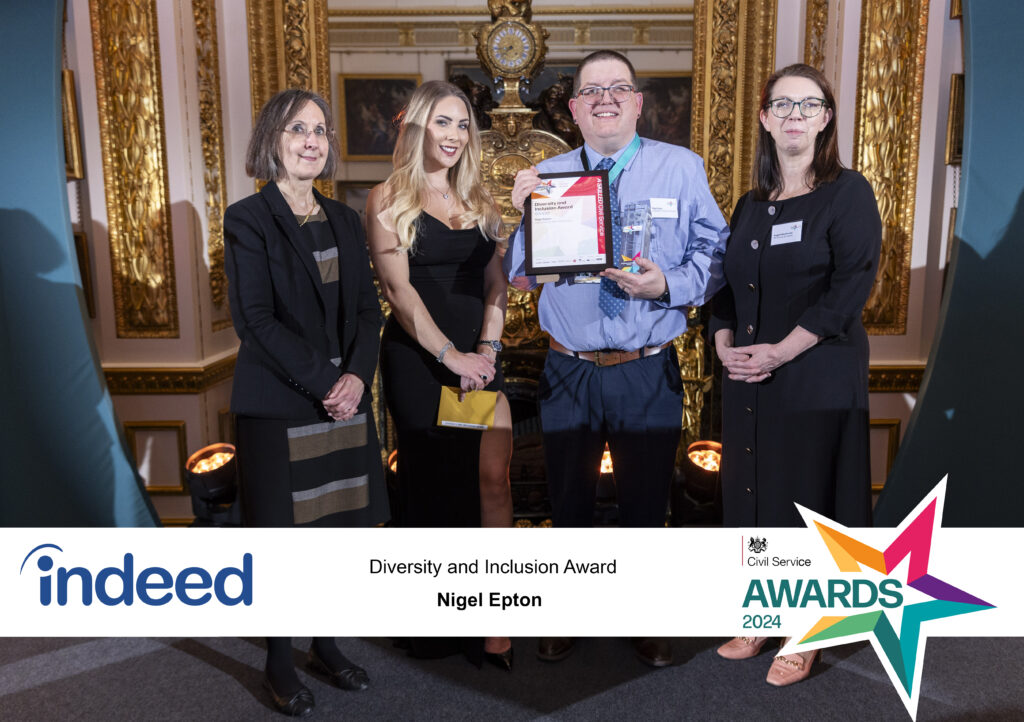
Diversity and Inclusion Award
supported by Indeed
Nigel Epton
Department for Work and Pensions
Nigel is profoundly deaf and a BSL user. He has found that support within UC for others who are also BSL users could be improved, especially within our communications. With many customers having to wait for interpreters to be booked or using RelayUK. Nigel has been working to create a way to communicate with customers and has been conducting a trial with video appointments by conducting warm up calls, support ad-hoc calls and also UCR interview calls. With fantastic feedback from the customers with how somebody within the department can support and help them with their claims
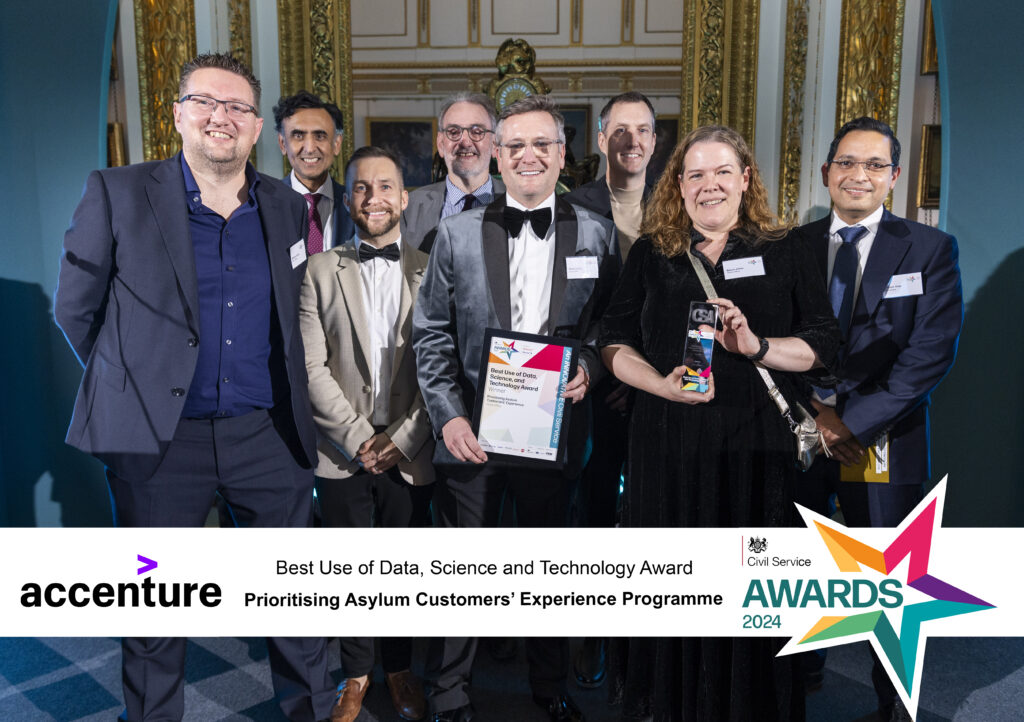
Best Use of Data, Science and Technology Award
supported by Accenture
Prioritising Asylum Customers' Experience Programme
Home Office
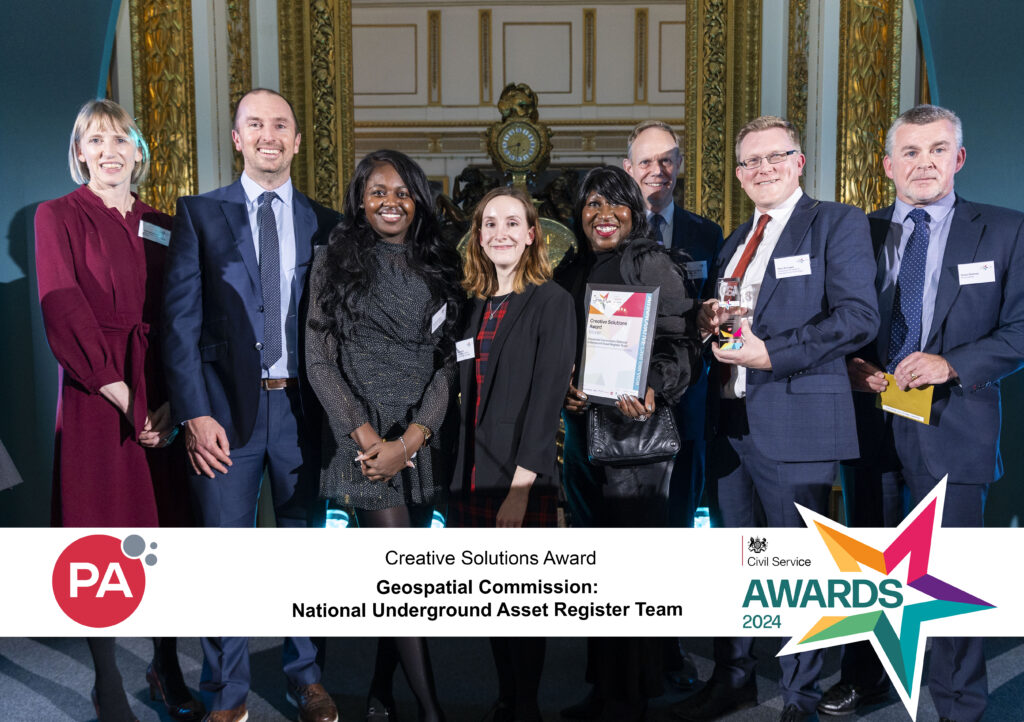
Creative Solutions Award
supported by PA Consulting
Geospatial Commission: National Underground Asset Register Team
Department for Science, Innovation and Technology
There are approximately 4 million kilometres of underground pipes and cables nationally and a hole dug every 7 seconds installing and maintaining them. Asset owners are legally required to share location data supporting ‘safe digging,’ but with no standardised approach, multiple organisations must be contacted for every dig. That is why the Geospatial Commission is building The National Underground Asset Register – a digital map of underground pipes and cables, that gives planners and excavators instant access to the data they need to work safely, reducing a 6.1-day process to 60 seconds, providing estimated economic benefits of over £400m annually.

Evaluation and Analysis Award
Early Years Data and Analysis Team
Ofsted
Ofsted’s Childcare Deserts and Oases project has transformed disparate cross-government and commercial data into novel real-world insights on the everyday experiences of parents seeking nurseries/childminders. It provides a hyperlocal view of childcare access across 180,000 neighbourhoods in England, using a two-step-floating-catchment model to account for local transport connections and the population of local children. This analysis has been instrumental in the early evaluation of a £14-billion investment in expanded childcare entitlements and their potential influence on local labour market participation. Ongoing data feeds from this modelling are informing policy discussion and evaluation at the highest levels across No.10 and DfE.
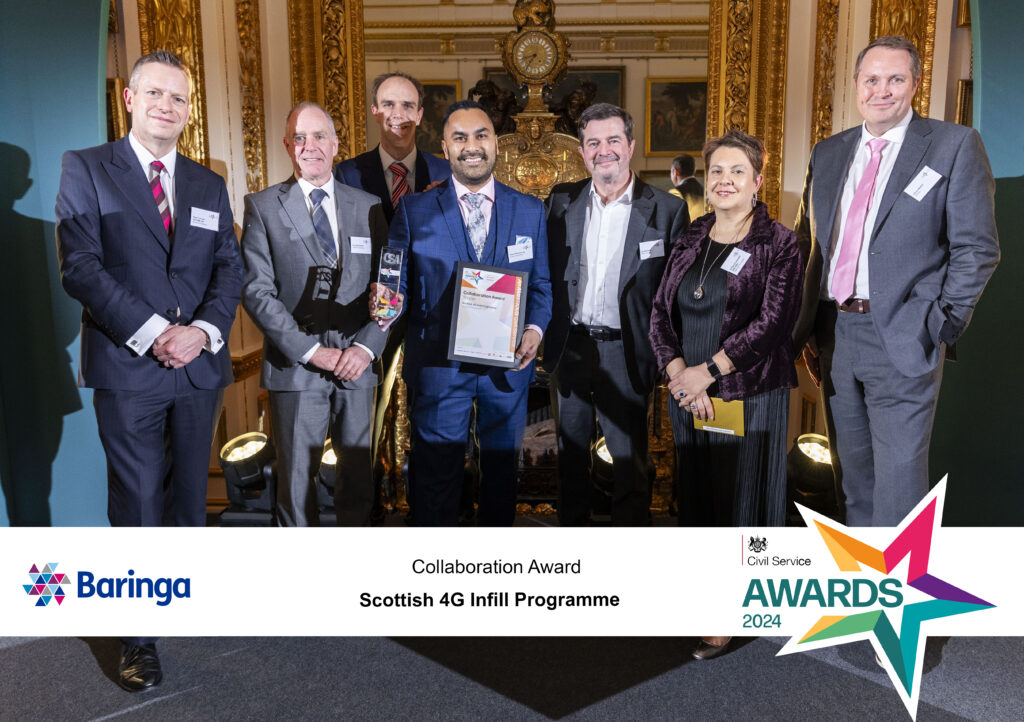
Collaboration Award
supported by Baringa
Scottish 4G Infill Programme
Scottish Government
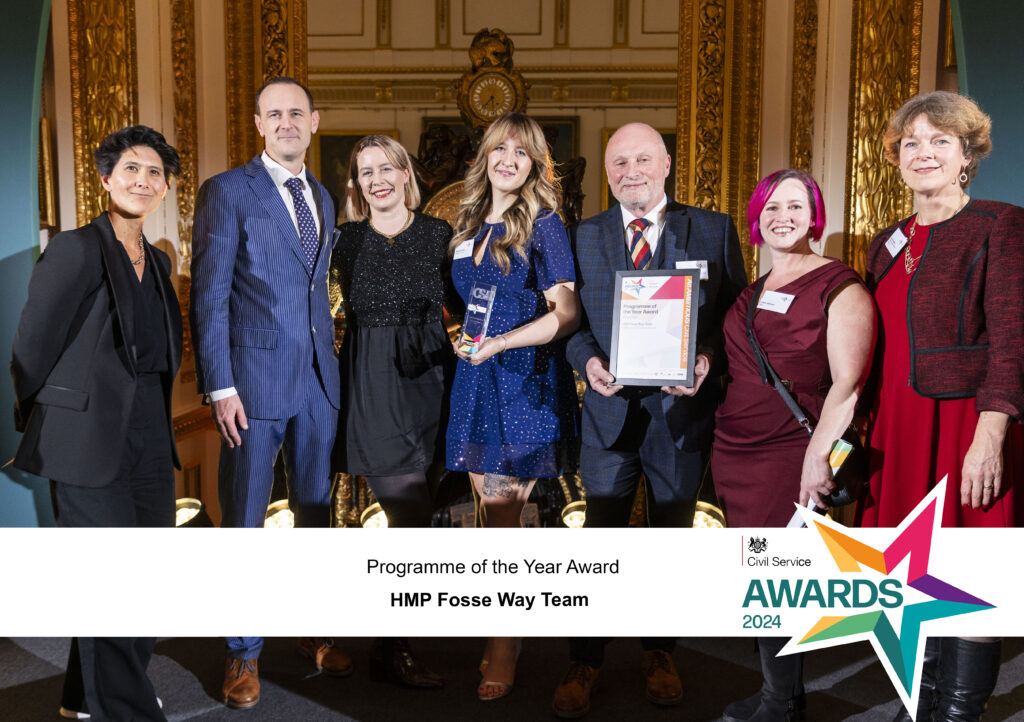
Programme of the Year Award
HMP Fosse Way Team
HM Prison and Probation Service
HMP Fosse Way is the second of six new prisons delivered as part of the Government’s commitment to build 20,000 new prison places. The war in Ukraine acutely impacted construction, with the effect on the labour market and supply chain changing the whole complexion of the programme. Significant pressures on prison population also meant it was crucial that the prison opened on time. Due to the extraordinary commitment and collaboration across both public and private sectors, the prison was opened on time. Further to this the team oversaw an accelerated ramp up- providing quicker prison capacity at a critical juncture.

Delivering for Citizens Award
supported by Mastek
'Help Gran Stop Spam' Campaign
Information Commissioner's Office
The ICO identified older and situationally vulnerable people being targeted by unlawful predatory marketing calls. We wanted to protect people from predatory calls by empowering the public to register with the Telephone Preference Service (TPS), increasing the number of nuisance calls reported and showcasing our work in this area. Our campaign included social media creative using the tagline ‘Help Gran Stop Spam’ as well as case studies in the press, support from external partners and an improved website journey and SEO. The campaign received positive media sentiment and prompted a 366% rise in TPS registrations in the first three days.
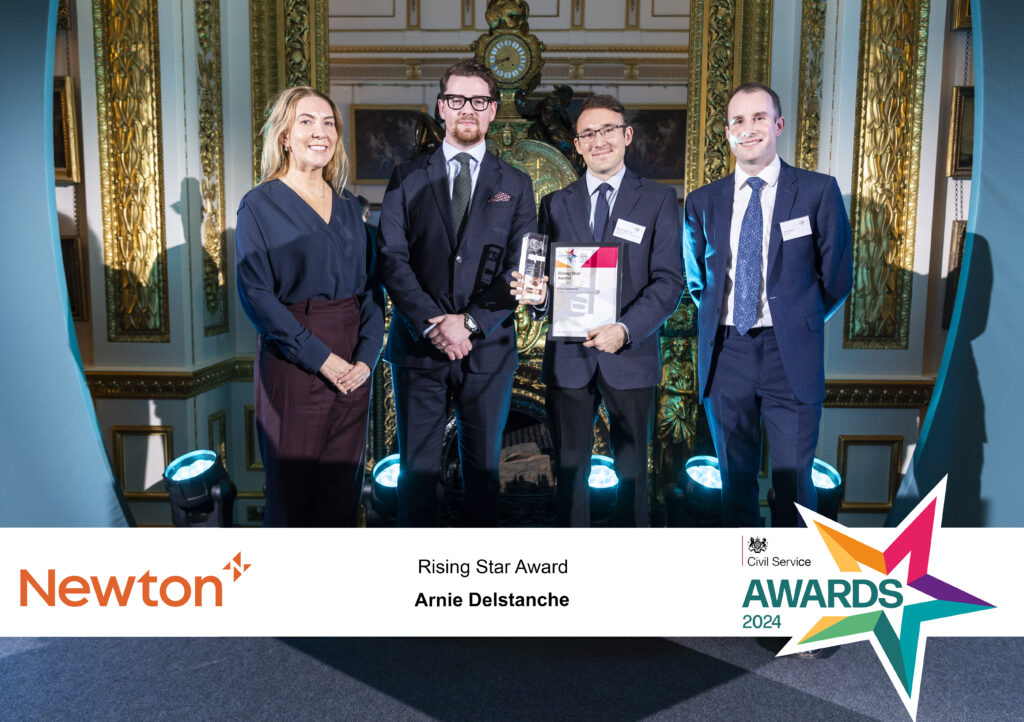
Rising Star Award
supported by Newton
Arnie Delstanche
Defence Science Technology Laboratory
Arnie Delstanche has made it his mission to transform Dstl’s approach to data analysis for wargaming and field experimentation. Through development of novel analytical tools and commitment to sharing knowledge and best practice, Arnie has strived to develop himself and others while improving the efficiency and quality of analysis used to inform decision-making across the MOD and Civil Service. His enthusiasm for implementing innovation so early in his career undoubtedly sets him apart and the pioneering dashboards and analytical capability he has developed have generated evidence that will inform the operations of our Armed Forces now and in the future.
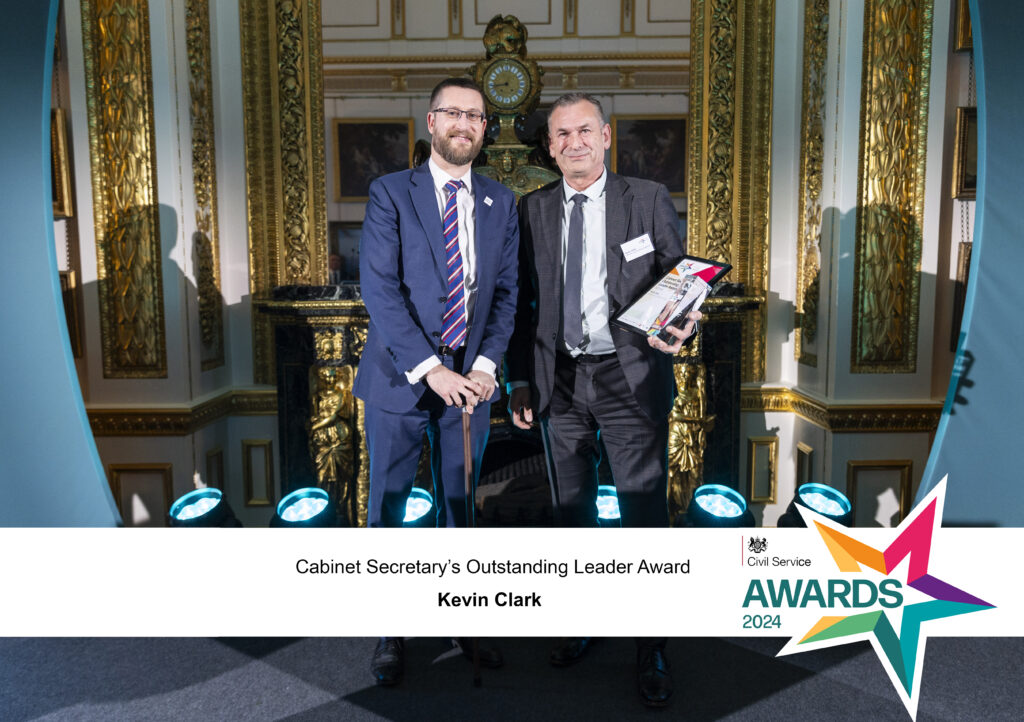
Cabinet Secretary's Outstanding Leader Award
Kevin Clark
HM Prison and Probation Service
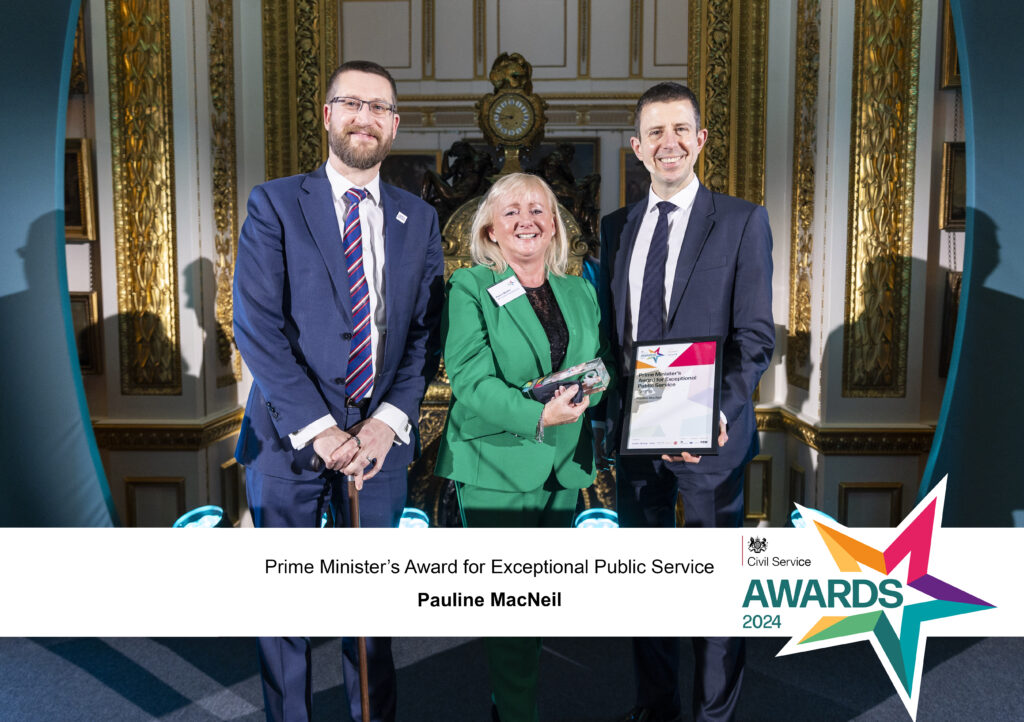
Prime Minister's Award for Exceptional Public Service
Pauline MacNeil
Ministry of Justice
During the Civil Disorder period, Pauline led the Response and Command functions within Courts and Tribunals, managing data collation, briefings, and operational responses. She coordinated with Police Escort and Custody Services (PECS), planned additional court hours, and supported cross-system decision-making. Despite leading a depleted team for almost 12 months, Pauline ensured swift guidance, maintained morale, and received exceptional feedback. Her efforts resulted in minimal disruption, safe operations, and prompt sentencing, earning recognition for the court system’s effective response.
